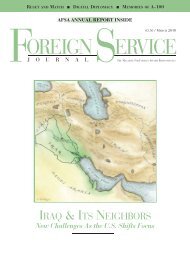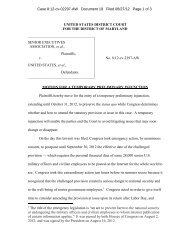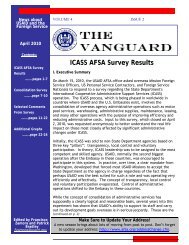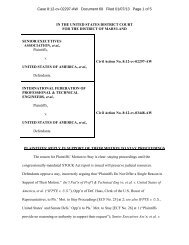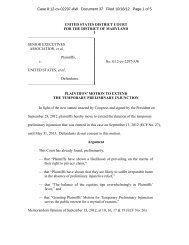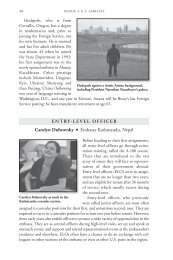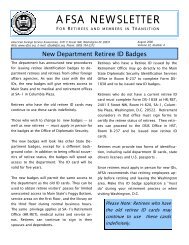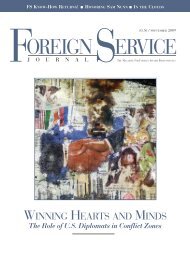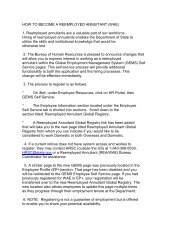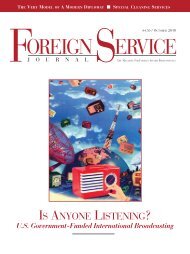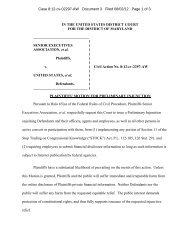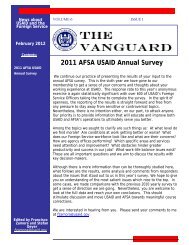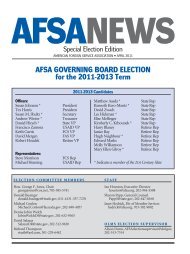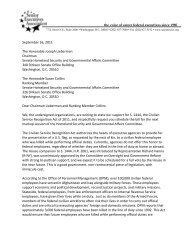F OCUS - American Foreign Service Association
F OCUS - American Foreign Service Association
F OCUS - American Foreign Service Association
Create successful ePaper yourself
Turn your PDF publications into a flip-book with our unique Google optimized e-Paper software.
B O O K S<br />
<br />
nates, though several legendary U.S.<br />
diplomats who worked in Moscow<br />
seemed equally indifferent to the plight<br />
of their fellow citizens — or at least unwilling<br />
to risk their careers to help<br />
them. Some of this indifference seems<br />
to have stemmed from the feeling that<br />
these <strong>American</strong>s had brought their fate<br />
upon themselves by leaving the United<br />
States, and perhaps also from class differences<br />
between the diplomats of that<br />
era and the working-class expatriates<br />
who sought their assistance.<br />
In addition, Tzouliadis reminds us<br />
that many <strong>American</strong>s in the 1930s still<br />
believed in the notion that the Soviet<br />
Union was a “workers’ paradise,” and<br />
tended to dismiss accounts of the Great<br />
Terror as propaganda. The great singer<br />
Paul Robeson on his visits to Russia reportedly<br />
refused appeals from persons<br />
looking to escape the USSR, and publicly<br />
supported Stalin until the end.<br />
While one obviously needs to be<br />
careful about passing judgment on<br />
diplomats of a different era, Tzouliadis<br />
persuasively argues that Davies failed<br />
to use the leverage available to him. In<br />
contrast, he notes, the Austrian ambassador<br />
to Moscow rescued dozens of his<br />
similarly-endangered compatriots, and<br />
the German government, newly allied<br />
with the USSR, didn’t hesitate to use its<br />
influence to secure release of its citizens<br />
(most of whom ended up in German<br />
concentration camps, however).<br />
Included among the ranks of Tzouliadis’<br />
“forsaken” are U.S. servicemen<br />
captured during World War II and<br />
Korea, most never heard from again.<br />
While this chapter could be its own<br />
book, Tzouliadis uses it as an effective<br />
bridge to relations with modern-day<br />
Russia. After the fall of the USSR, an<br />
early 1990s intergovernmental project<br />
to analyze newly opened Soviet-era<br />
archives to trace the fate of those captured<br />
U.S. servicemen quickly ran into<br />
resistance from the Russian security<br />
agencies.<br />
Those truly knowledgeable about<br />
the events of this era may take exception<br />
to some of Tzouliadis’ assertions<br />
and interpretations. Nonetheless,<br />
The Forsaken is a superb introduction<br />
to the Great Terror and the story of<br />
the thousands of <strong>American</strong>s caught up<br />
in it. ■<br />
Marko Velikonja joined the <strong>Foreign</strong> <strong>Service</strong><br />
in 1999 and has served in Manila,<br />
Montreal and Moscow. He is currently<br />
an economic officer in Yerevan.<br />
A P R I L 2 0 0 9 / F O R E I G N S E R V I C E J O U R N A L 53



